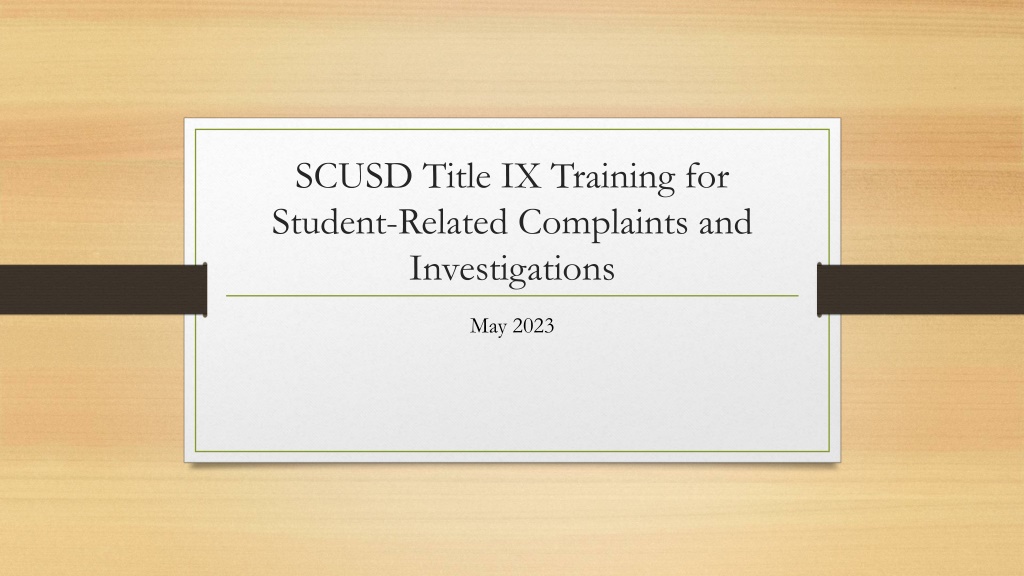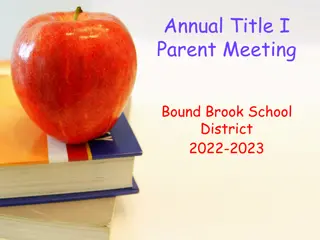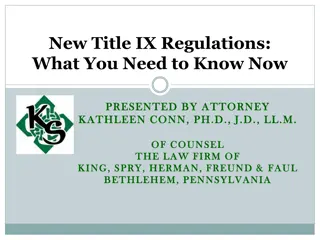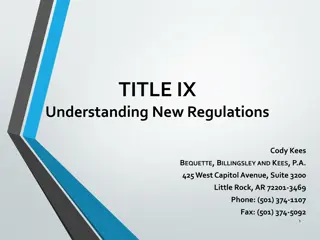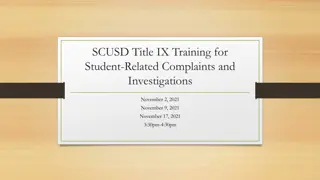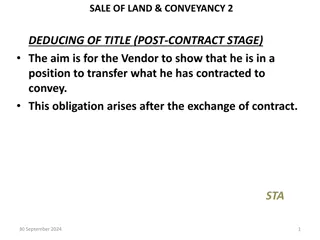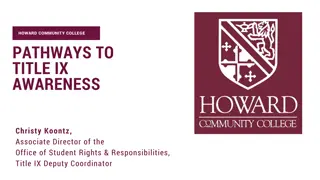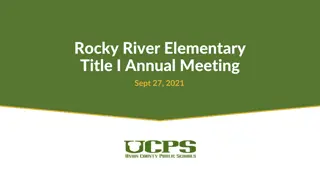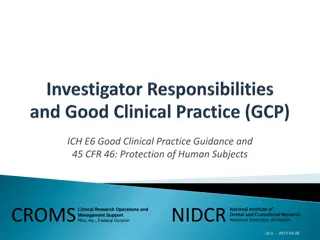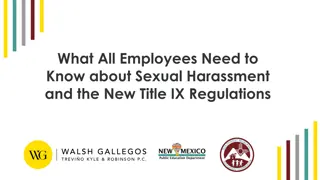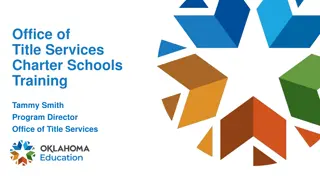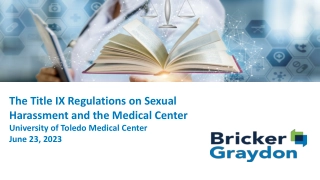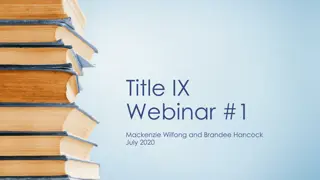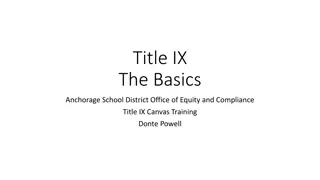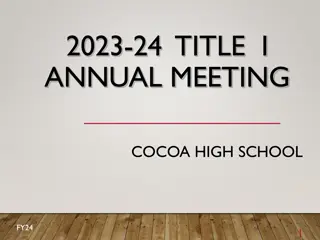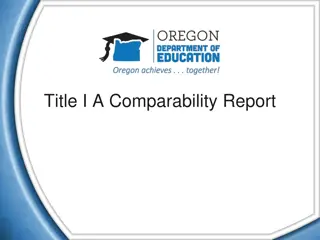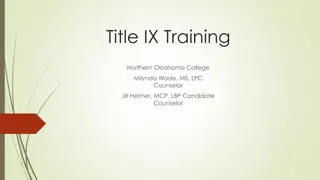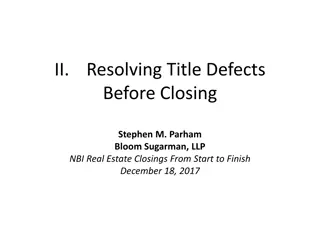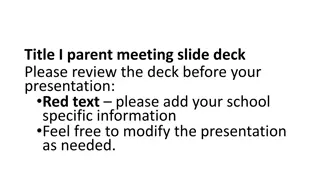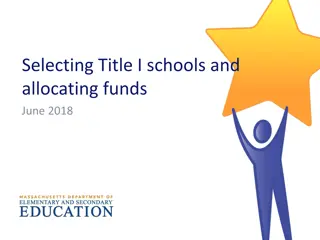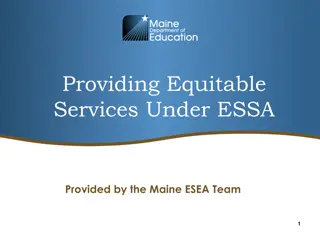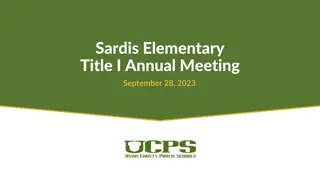Understanding Title IX Regulations and Guidelines in Education
Title IX is a crucial legislation that prohibits discrimination based on sex in educational programs receiving federal financial assistance. This content provides insights into Title IX, including its history, key contacts, specialist responsibilities, and upcoming 2023 regulations. It covers the importance of compliance, processes for handling complaints, recent regulatory changes under different administrations, and the impact on various groups such as LGBTQ individuals, pregnant and parenting rights, and victims of sexual assault or harassment.
Download Presentation

Please find below an Image/Link to download the presentation.
The content on the website is provided AS IS for your information and personal use only. It may not be sold, licensed, or shared on other websites without obtaining consent from the author. Download presentation by click this link. If you encounter any issues during the download, it is possible that the publisher has removed the file from their server.
E N D
Presentation Transcript
SCUSD Title IX Training for Student-Related Complaints and Investigations May 2023
Title IX Contacts Title IX Office Stephan Brown (Title IX Coordinator) Kyle Allen (Investigator) Sharon Barnes (Investigator) Appeals Officer (Dr. Olga Simms) Decision Maker (Stan Echols) Legal Services Lozano Smith, Attorney at Law Raoul Bozio, Attorney Equal Rights Advocates, Attorney s at Law
What is Title IX? Title IX of the Education Amendments Act of 1972 No person in the United States shall, on the basis of sex, be excluded from participation in, be denied the benefits of, or be subjected to discrimination under any education program or activity receiving Federal financial assistance. (facilities, athletics, access, scholarships etc..) District policies cover nondiscrimination/harassment and sexual harassment (BP and AR 5145.3 and 5145.7); recently updated AR 5145.7
Title IX Specialist Responsibilities Know the Process / Explain Process Formal Written Complaint vs. Report Keep Excellent Records Preliminary Investigation (Keep Notes) Likely Assist Actual Investigation Offer Supportive Measures
History of Title IX Very little change from 1972 - 2011 Nixon, Ford, Carter, Reagan, Bush, Clinton, Bush, Major changes since 2011 Obama: 2011 (Dear Colleague Letter) Trump: 2020 (New Rule, Period of Public Comment) Biden: 2023 (New Rule, Period of Public Comment)
New Regulations 2023 Formal Announcement any day LGBTQ (increased protections) Limited impact in California Increased rights for Pregnant and Parenting (Reasonable Accommodations) Limited impact in California Victims of sexual assault or harassment (Safeguards and protections) Limited impact in California New standard Sufficiently Severe or Pervasive (and)
New Regulations 2023 Expected Written complaints no longer required by complainant New rules for investigations (coordinator has more discretion for investigations and dismissals) Possible new rules for appeals (CDE vs. OCR) Minimal changes in California Exchange of information still required SCUSD Model: SCIF (Sensitive Compartmented Information Facility)
Title IX Jurisdiction Allegations of sexual harassment fall under Title IX when: The conduct occurs against a person in the United States; The conduct occurs in an education program or activity over which the District exercised substantial control over both the respondent and the context in which the sexual harassment occurs; The complainant was participating/attempting to participate in the educational program or activity at the time the complaint was filed.
Examples of Sexual Harassment Unwelcome propositions Derogatory comments Sexual jokes or gestures Spreading sexual rumors Grabbing or touching Comments about looks or appearance that are unwelcome Sexual acts without consent or based on coercion
Key People and Terms Complainant Respondent Coordinator Investigator Decision-maker Appeals Officer Informal Resolution Officer (Coordinator) Advisor
Supportive Measures Supportive measures should be offered to the Complainant or Respondent before and after the filing of a formal complaint. Escort to class Change to class schedule Refer to counseling Safety plan No Contact Order Emergency removal Use trauma-informed approach Non punitive
Investigator Send notice of investigation letters to both the Complainant and the Respondent. Investigation process includes interviewing witnesses and reviewing evidence. Investigation report should be prepared by the investigator and must summarize relevant evidence. (likely changes in 2023..no report required)
Decision-Maker The decision-maker must allow parties the opportunity to submit written relevant questions for the other party/witnesses and ask those questions they deem relevant. The decision-maker must provide an explanation as to why a question was deemed irrelevant. The decision-maker must prepare the written determination.
Appeals Officer Parties may appeal the written determination on the following bases: Procedural irregularity New evidence that was not reasonably available earlier Title IX personnel had a conflict of interest or bias Appeals Officer Olga Simms
Report of Suspected Harassment https://www.scusd.edu/post/title-ix-harassment-complaint-forms
